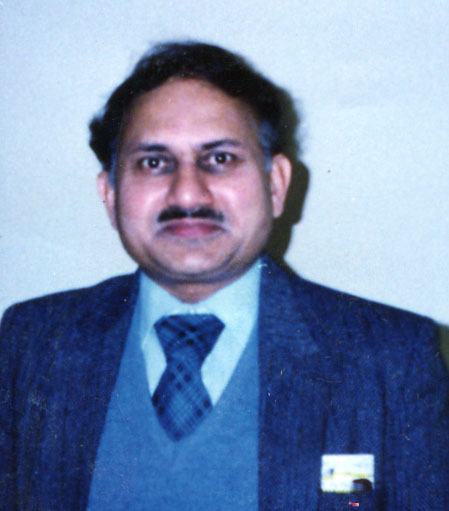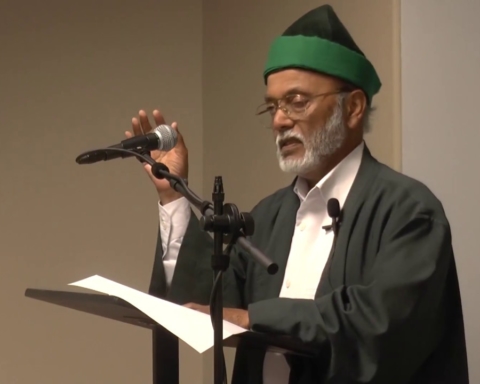It is no wonder that Ibn Rushd is referred to as the greatest philosopher after Aristotle.

Reviewed by Nazeer Ahmed[1]
The book, Intellectual Achievements of Muslims (Published by Star Publications, New Delhi, India and Islamic-Circle, Qur’an House, Mauritius Published in 2002, 3 Chapters, 133 pages), highlights the intellectual achievements of Muslims in the classical age of Islam and examines the reasons for the decay of science and technology in recent centuries. As such it pertains to the field of scientific historiography. It consists of three chapters: (1) Intellectual Achievements of Muslims by Dr. Ibrahim B. Syed, (2) The Rise and Decline of Science in Islamic Civilization by Dr. Ayub K. Ommayya, and (3) Causes for the Decline of Scientific Thinking in Islam by Dr. Shaukat Ali.
In the first Chapter, Dr. Ibrahim Syed[2] traces the motivation for intellectual activity in Islam, namely, the Qur’an and the Sunnah of the Prophet. The Qur’an declares: “Verify in the creation of the Heavens and the earth, and in the alteration of the night and the day, there are signs for men of comprehension. Those who standing, sitting or reclining are conscious of Allah and reflect on the creation of the Heavens and of the Earth, saying: “Our Lord! You have not created this in vain”. The Qur’an enjoins humankind to pray: “My Lord! Enrich me with knowledge”. The Prophet said: “Allah has not created anything better than reason”.
Impelled by the Commandments of God and the Sunnah, Muslims created a civilization based on knowledge, built madrassahs and universities and produced great men of art and science. In the first century after Islam, the Prophetic example was the guidepost for knowledge. In the eighth century, Khalifa al Mansur founded the Baitul Hikmah in Baghdad. Books were brought in from the Greeks and the Indians, translated into Arabic and the information therein became the basis for further development in both the pure and the applied sciences.
The book illustrates the contributions made by Muslims by offering specific examples. Al-Khwarizmi, the mathematician invented the regressive method of mathematical analysis and to this day the world pays him tribute by referring to this methodology as “algorithms”. Al Battani discovered trigonometric relations and developed the concepts of sines, cosines, tangents and cotangents. Nasiruddin al-Tusi was one of the greatest of engineers and mathematicians. His contributions to spherical geometry are universally recognized. The Muslims invented the experimental method and as such deserve to be called the fathers of the modern scientific method. Their contributions in the applied sciences and engineering were no less astounding.
Dr. Syed mentions the astronomical observatories in Shiraz, Cairo, Ghazna, Maragha, and Samarkand as illustrations of the empirical method employed by Muslim scientists. Nasiruddin al Tusi and Ulugh Bey later expanded the work of earlier astronomers such as Ibn Yunus, Al Biruni and Ibn al Haytham. Equally noteworthy was work of Ibn al Haytham and Kamaluddin al Farisi in Optics. But perhaps the most remarkable contributions were made in the field of philosophy. Starting out the work of Aristotle and Plato, Muslim philosophers developed and systematized the science of logic. It is no wonder that Ibn Rushd is referred to as the “greatest commentator” or the greatest philosopher after Aristotle.
The author notes that the Theory of Evolution was first proposed by Muslim philosophers. The observation of John William Draper is offered in support of this position: “Though more than seven centuries part him from our times, the physiologists of this age may accept him (Ibn al Haytham) as their compeer, since he received and defended the doctrine now forcing its way, of the progressive development of animal forms. He upheld the affirmation of those who said that man, in his progress, passes through a definite succession of states”.
The author expresses his concern at the woeful state of science in Islamic countries today. To overcome this handicap, he quotes with approval the proposition of Nobel Laureate Abdus Salaam to form a Commonwealth of Science in Islamic countries:” A new Islamic Commonwealth of Science needs conscious articulation, and recognition once again, both by us, the scientists, as well as our governments.
Today, we, the scientists from the Islamic countries, constitute a very small community – one-hundredth to one-tenth in size, in scientific resources, and in scientific creativity compared to international norms….To foster this growth, could we possibly envisage from our governments a moratorium, a compact, conferring of immunity, for say the next twenty-five years, during which the scientists from within this Commonwealth of Science, this Ummat al-ilm, could be treated as a special sub-community with a protected status, so far as internal political and sectarian differences are concerned, just was the case in the Islamic Commonwealth of sciences in the past?”
Continue to:
Footnotes:
[1] Professor (Dr) Nazeer Ahmed is President of American Institute of Islamic History and Culture, Corcord, California
[2] Ibrahim B. Syed is an American radiologist and the president of Islamic Research Foundation International.


